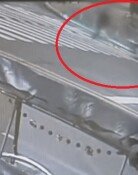[Op-Ed] Anti-corruption Commission
[Op-Ed] Anti-corruption Commission
Posted November. 27, 2009 08:31,
Lee Jae-oh, a former lawmaker and close confidant of President Lee Myung-bak, was sent behind bars five times for taking part in past democratic movements, spending a combined 10 years in prison. In 1996, Lee Jae-oh entered the ruling New Korea Party, the predecessor of todays Grand National Party. Because of this, he was criticized for renouncing his views. Lee Jae-oh responded by saying, My views remain the same. I stood up to the dictatorship not because Im a leftist or socialist, but because I oppose what is not right, adding, My dream is to create a world where justice flows like water in a river. Though the three-time lawmaker was once called the No. 2 man in the Lee administration, he lives in a modest home. This is why his acquaintances said he returned to his place upon his appointment as head of the Commission on Peoples Rights and Interests.
To fight corruption, Lee Jae-oh said he will hold regular meetings of the commission, the Board of Audit and Inspection, prosecutors, police and the National Tax Office and conduct public integrity assessments of high-ranking officials. He has also urged each public official to spend just 5,000 won (4.33 U.S. dollars) on lunch. Two months after taking office, he resolved a 48-year-old dispute over a limit on building height near an Air Force base in Yangyang, Gangwon Province, and another over the use of idle school land in the southern port city of Ulsan. His achievements, however, have drawn mixed reactions. Some commend Lee Jae-oh for doing what he should do as a powerful figure, while others criticize him for committing politically driven acts and going beyond his authority.
A revision to laws governing the commission has also stirred controversy. The commission has submitted a revised law allowing it to request from financial institutions financial transaction data. It also wants the right to get government agencies to hand over the personal data of public officials to assess their integrity. In particular, the submission of financial transaction data is tantamount to giving the commission the right to trace bank accounts. Another source of dispute is that the revision will put the commission under the control of the president, not the prime minister.
Fighting corruption is a national task. The level of transparency in government organizations lags far behind Koreas economic standing in the world. The commission, which succeeded the Korea Independent Commission against Corruption, needs to step up the fight against corruption in the public sector. If Lee Jae-oh ramps up such efforts, public officials will be on high alert. He should bear in mind, however, that too much is just as bad as too little. This has led to fears that the commission will grow more powerful than the Board of Audit and Inspection if it gets all it wants.
Editorial Writer Lee Jin-nyong (jinnyong@donga.com)







